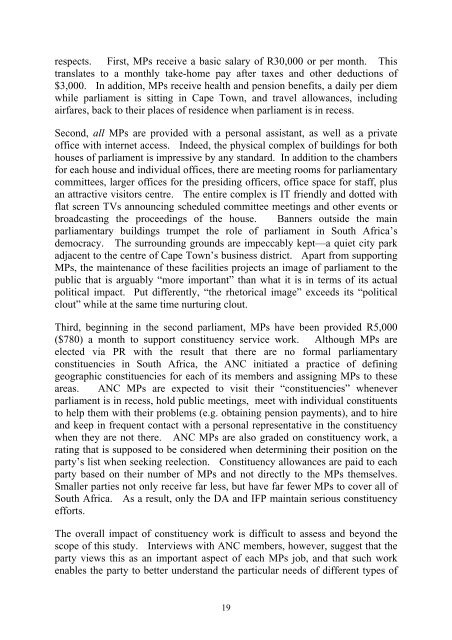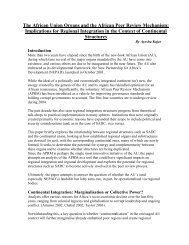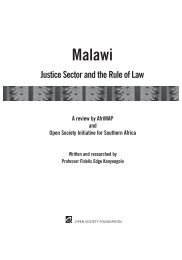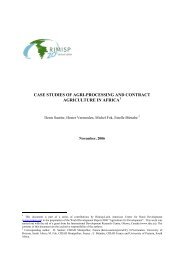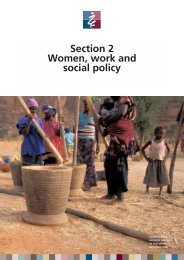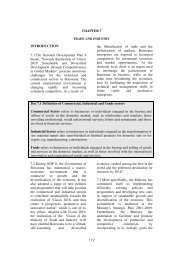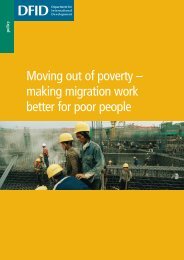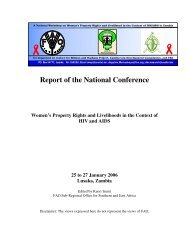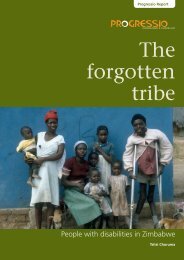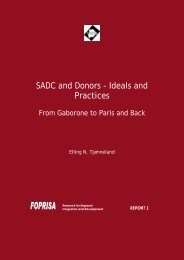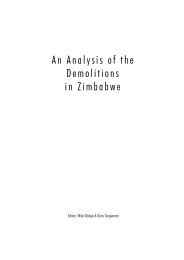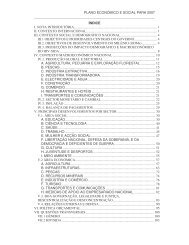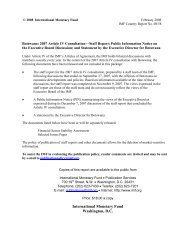400Kb ~ 2 min (33 pages) - SARPN
400Kb ~ 2 min (33 pages) - SARPN
400Kb ~ 2 min (33 pages) - SARPN
You also want an ePaper? Increase the reach of your titles
YUMPU automatically turns print PDFs into web optimized ePapers that Google loves.
espects. First, MPs receive a basic salary of R30,000 or per month. Thistranslates to a monthly take-home pay after taxes and other deductions of$3,000. In addition, MPs receive health and pension benefits, a daily per diemwhile parliament is sitting in Cape Town, and travel allowances, includingairfares, back to their places of residence when parliament is in recess.Second, all MPs are provided with a personal assistant, as well as a privateoffice with internet access. Indeed, the physical complex of buildings for bothhouses of parliament is impressive by any standard. In addition to the chambersfor each house and individual offices, there are meeting rooms for parliamentarycommittees, larger offices for the presiding officers, office space for staff, plusan attractive visitors centre. The entire complex is IT friendly and dotted withflat screen TVs announcing scheduled committee meetings and other events orbroadcasting the proceedings of the house. Banners outside the mainparliamentary buildings trumpet the role of parliament in South Africa’sdemocracy. The surrounding grounds are impeccably kept—a quiet city parkadjacent to the centre of Cape Town’s business district. Apart from supportingMPs, the maintenance of these facilities projects an image of parliament to thepublic that is arguably “more important” than what it is in terms of its actualpolitical impact. Put differently, “the rhetorical image” exceeds its “politicalclout” while at the same time nurturing clout.Third, beginning in the second parliament, MPs have been provided R5,000($780) a month to support constituency service work. Although MPs areelected via PR with the result that there are no formal parliamentaryconstituencies in South Africa, the ANC initiated a practice of defininggeographic constituencies for each of its members and assigning MPs to theseareas. ANC MPs are expected to visit their “constituencies” wheneverparliament is in recess, hold public meetings, meet with individual constituentsto help them with their problems (e.g. obtaining pension payments), and to hireand keep in frequent contact with a personal representative in the constituencywhen they are not there. ANC MPs are also graded on constituency work, arating that is supposed to be considered when deter<strong>min</strong>ing their position on theparty’s list when seeking reelection. Constituency allowances are paid to eachparty based on their number of MPs and not directly to the MPs themselves.Smaller parties not only receive far less, but have far fewer MPs to cover all ofSouth Africa. As a result, only the DA and IFP maintain serious constituencyefforts.The overall impact of constituency work is difficult to assess and beyond thescope of this study. Interviews with ANC members, however, suggest that theparty views this as an important aspect of each MPs job, and that such workenables the party to better understand the particular needs of different types of19


